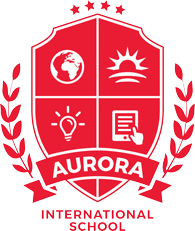The formal mode of schooling starts in Elementary school. At this stage, our students continue to build on fundamental skills for learning – cognitive, physical and socio-emotional—as they progress through the IB PYP curriculum framework, which culminates in Class V with the PYP Exhibition. Learn more about the PYP here.
The curriculum prepares students to become active, caring, lifelong learners who demonstrate respect for themselves and others and have the capacity to participate in, and contribute to, the world around them. Students at this level explore themselves and their surroundings, further advance their literacy and numeracy skills and widen their horizons in science, social awareness, the arts and physical education. Computer skills, media literacy and IT play an important role in children’s learning.
Curriculum Overviews
Our academic program builds the knowledge, skills and dispositions for success in all three of the key child development areas: cognitive, physical, and social and emotional.
To learn more about the curriculum, please click on the links:
Academics
The curriculum in Elementary School challenges students and builds a wide range of skills and conceptual understandings. Based on the PYP curriculum framework, the heart of our Elementary program is the Program of Inquiry.
- Class I: This program is for 6-year-old inquirers and provides enjoyable learning experiences that promote their blossoming independence and social skills, and foster self-confidence. Academic rigor is built into the curriculum to ensure strong foundations are laid for the academics in higher classes. The focus remains on key skills: literacy, numeracy, communication, scientific and social exploration, and creative thinking skills.
- Class II: Our 7-year-olds focus on investigation, exploration, and discovery; we encourage our active and enthusiastic children to refine and expand their skills and knowledge to help them be thinkers and risk takers. This is the last foundational year for students – they now start to move away from learning to read and towards reading to learn.
- Class III: Our 8-year-olds develop balanced skills and concepts in core academic areas. Our holistic approach engages young minds and challenges them in their inquiries. Students can now read to learn and they apply this skill to conduct research and learn more about the world and themselves. Students also start to use technology to take their learning forward. They start to grow into reflective individuals.
- Class IV: As children approach Middle School, our academic program helps students to explore, communicate, and create to be knowledgeable, principled and open minded. Our curriculum of fundamentals in reading, language development, mathematics, science, social studies, the arts, technology and media, and physical education is taught in an engaging way that encourages a lifelong love of learning.
- Class V: This is the last year of the PYP and the last year of Elementary School; in this year, students are required to build on their learning and skills to pursue their own research project that will culminate in the PYP Exhibition.
Physical Education
At Aurora, physical activity is an important aspect of our academic program as physical development and exercise are considered by most education experts to be a key ingredient in students’ academic success. Different types of equipment and play items catering to the physical development requirements of children of all ages are part of the indoor and outdoor sports facilities of the school.
Our physical education program includes swimming and yoga, dance, athletics and fitness, and the basics of a range of sports. Physical education is part of the daily schedule for all Elementary students.
The Performing and Visual Arts
The performing and visual arts are another key component of Aurora’s academic program. On a daily basis, students develop their own aesthetic, creativity and practical skills in the arts—drama and dance, music and visual art. These are tied to the units of inquiry and build technical skills and the students’ conceptual understanding of the elements of art. In music, students not only learn to use their voice but also learn to play musical instruments and create their own compositions.
Media & Technology
Technology is an important part of our curriculum because we believe it will be integral to the academic and professional success of our students in their lives to come; we strive to develop our students as digital natives. However, we intend to integrate technology responsibly to ensure students use it as a supplement to learning and use it safely.
From Elementary School onwards, we expect students not only to use smartboards for group learning, but also tablets or laptops for individual use. Our academic program will include the use of technology to access digital resources; using technology to do school work and conduct research; using technology to create art, music and videos; as well as coding and programming.
All students are expected to make appropriate choices regarding technology use. Students discuss issues related to this, including the responsible use of technology in their lives, developing an understanding of and evaluating online resources, online safety, appropriate online behavior, and effectively managing time spent on devices, plagiarism and respecting privacy.
Learning for Life
This is a series of lessons and discussions conducted by teachers during homeroom periods. Teachers lead discussions and activities to explore the physical and emotional wellbeing of children. They also address skills and concepts related to personal safety, social skills, peer relationships, and other life skills. A structured curriculum is provided to teachers to ensure a range of relevant skills and values are developed in students.

